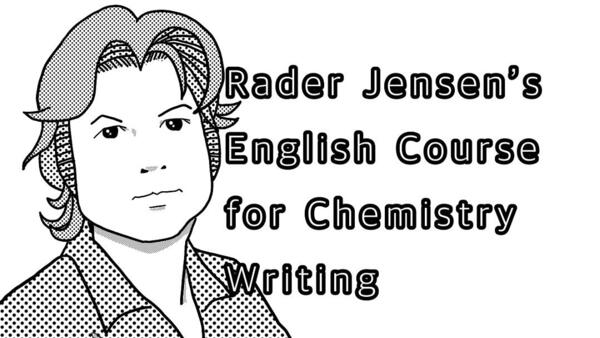CSJ Journals
[化学論文のための英語講座] 第57回:比較級
(English version is here.)
英語でものの性質を比べ、差を述べる時は比較級を使います。綴りの短い単語での比較級は語尾に「-er」をつけ「短母音+子音字」で終わるのは子音字を重ね「子音+y」で終わる場合は「i」に変えます。例えば「hot, hotter」と「heavy, heavier」です。多音節の場合は「more」や「less」を置き「more abundant」「less reactive」のようにします。比較級では最上級より冠詞と前置詞の利用が複雑なので、いくつか規則をみてみましょう。
比較対象が特定されてないと比較級は使いません。例えば以下の文をみましょう。
1. Hydroxide is a stronger nucleophile.
訳文:ヒドロキシドはより強い求核試薬だ。
しかし、何より強いのかわからないのでこの文はちょっと足りないです。 この文はそのままであれば混乱を生じる可能性があります。比較対象があれば意味が明らかになります。
2. Chloride is present but hydroxide is a stronger nucleophile.
訳文:塩素の陰イオンはあるが、ヒドロキシドはより強い求核剤である。
比べる相手が比較級の後ろにあるとき、相手の前に「than」を置くことが必要になります。
3. Butyllithium is a stronger base than lithium diisopropylamide.
訳文:ブチルリチウムは塩基として LDA より強い。
比較級の後に名詞があるときには、冠詞が必要になります。
4. Of the two, hydroxide is the stronger base.
5. Of the two, hydroxide is a stronger base.
比較級を使う時は「than」と冠詞の有無を考慮に入れると良いでしょう。
[補足]
比べる相手がだいたい同じであることを示す時は副詞または形容詞の前に「as」をつけ、もう一つ比べる相手の前に「as」置きます。
6. In this reaction, TEA is as effective as DIPEA.
訳文:この反応では、TEAはDIPEAと同じくらい有効だ。
DIPEA: N,N-diisopropylethylamine
TEA: triethylamine
次回はCrafty Idiomsについてです。
In English, when comparing the properties or differences of things, the comparative is used. For short comparatives, -er is added to the end. If the word ends with a vowel + consonant add a second vowel, and if it ends in -y change the y to i. For example, hot becomes hotter and heavy becomes heavier. For polysyllabic comparatives, add more or less. For example, more abundant or less reactive. The use of articles and prepositions is more complicated with comparatives so let us look at a few rules.
Comparatives are not used if the object of comparison is not specified. Let us look at the following sentence.
1. Hydroxide is a stronger nucleophile.
Because what hydroxide is stronger than is not stated, this sentence is somewhat lacking. Left as it is, this sentence can generate confusion. If an object of comparison is expressed, the meaning becomes clear.
2. Chloride is present but hydroxide is a stronger nucleophile.
When the object of comparison appears after the comparative, placing than before the object is necessary.
3. Butyllithium is a stronger base than lithium diisopropylamide.
If a noun appears after the comparative, an article is necessary.
4. Of the two, hydroxide is the stronger base.
5. Of the two, hydroxide is a stronger base.
When using the comparative, it is good to consider the presence or absence of than or articles.
Supplement:
When showing that the compared items are similar, place as before the adjective or adverb and an additional as before the addition compared item.
6. In this reaction, TEA is as effective as DIPEA.
DIPEA: N,N-diisopropylethylamine
TEA: triethylamine
We will discuss about Crafty Idioms at next time.
